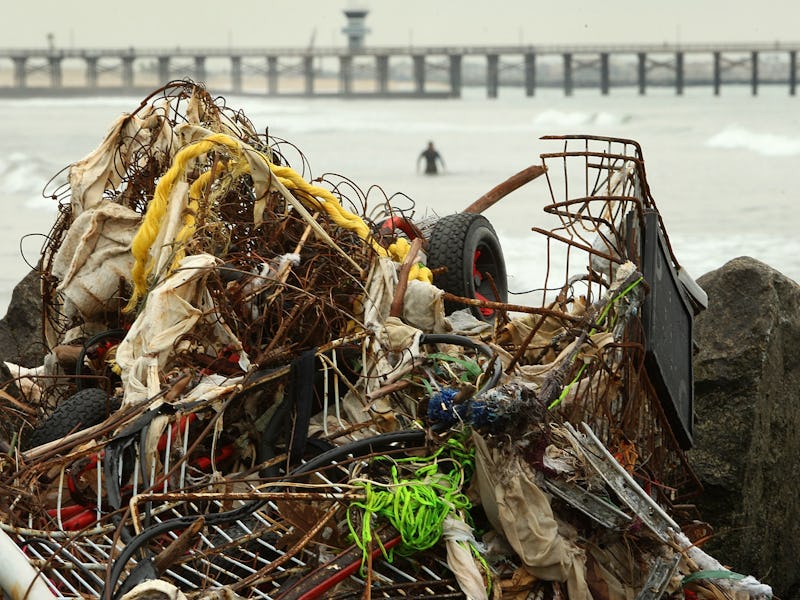The Ocean Is No Place for Your Plastic, but It Is Full of It
Plastic will overtake fish in the ocean by 2050.

In 2050, the world’s oceans will hold more plastic than fish by weight, assuming current trends continue, and nobody is taking the warnings posed in the Ellen Macarthur Foundation’s new report on global plastics seriously.
Over 30 percent of the plastics produced today will leak into natural ecosystems like the ocean, while another 40 percent end up in landfills and another 14 percent are incinerated or used in energy recovery. In economic terms, this means “95% of the value of plastic packaging material, worth $80-120 billion annually, is lost to the economy,” simply because we suck at recycling.
Just 14 percent of the plastics in the world make it to recycling plants, and with losses due to imperfect efficiency, only eight percent of plastics are recycled for additional uses. Two percent of plastics are reused and not just thrown away in the first place.
“At least 8m tonnes of plastics leak into the ocean – which is equivalent to dumping the contents of one garbage truck into the ocean every minute. If no action is taken, this is expected to increase to two per minute by 2030 and four per minute by 2050.”
The Ellen MacArthur Foundation report also stresses that this plastics cycle poses a threat not only to our environment but to our ability to wean ourselves off fossil fuels. Currently, only four percent of the world’s oil goes to plastic production, a figure which could increase to as much as 20 percent by 2050.
Such heavy use of oil produces major challenges to our attempts to fight off climate change. Plastic production today only accounts for about 1 percent of the carbon released into the atmosphere, though it could become a full 15 percent by 2050.
We are using plastics at a rate that has to decrease if we are going to have a shot at containing the problem.
And there’s plenty we can do. Ban plastics like PVC that are hard to recycle. Introduce a more universal packaging with clear indicators that ensure anything that can be recycled is. Reduce our wasteful uses. And reuse more. Much more. If we want natural ecosystems to survive into the future and aren’t planning on a permanent economic recession — so far the dip in our plastic consumption occurred from 2008-2010, though we quickly recouped any loss in the recovery — we are going to need to take all of the steps outlined in the report and probably more.
Or we’ll have to learn to digest plastic and eat it instead of all the fish.